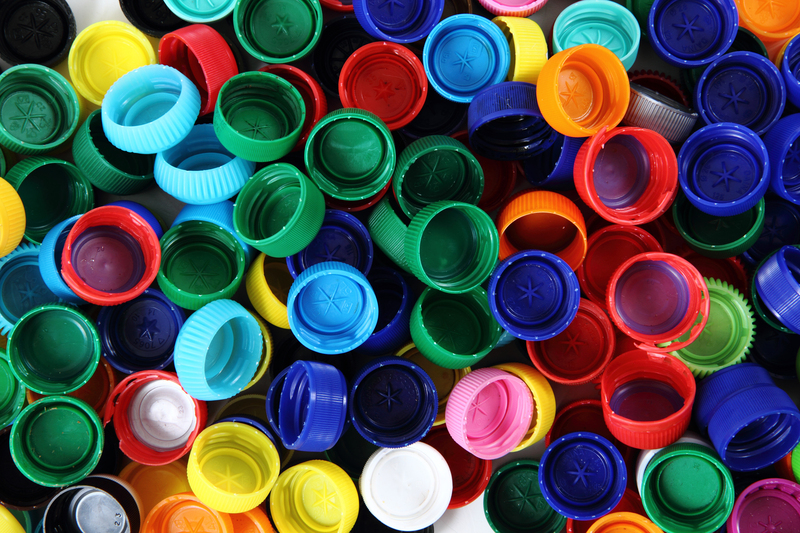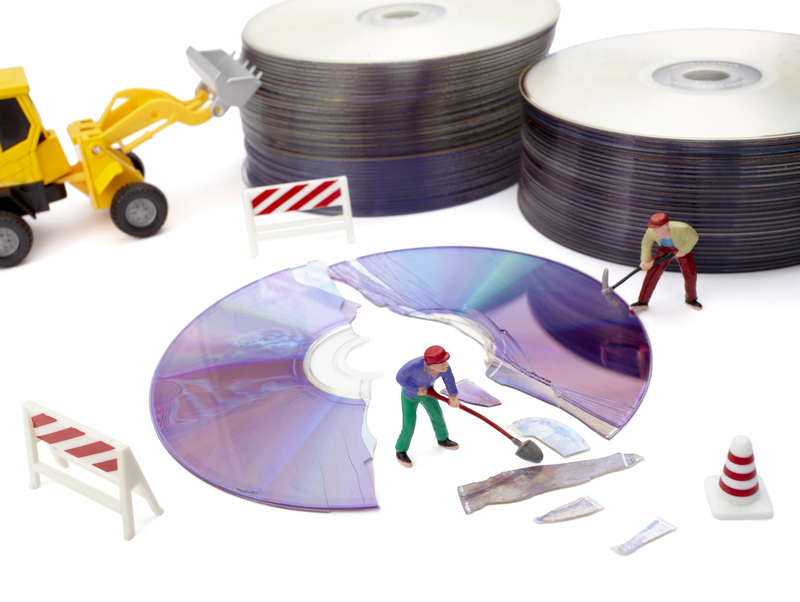Smart Strategies for Recycling Cookware Responsibly
In today's sustainability-driven world, knowing the smart strategies for recycling cookware responsibly is crucial for minimizing environmental impact and promoting eco-friendly practices at home. Every year, tons of old pots, pans, and kitchen utensils end up in landfills, contributing to pollution and resource depletion. But did you know there are responsible ways to recycle your old cookware, diverting waste from landfills while conserving resources? This comprehensive article explores how you can recycle cookware responsibly, the different options available, and why it matters.

Why Responsible Cookware Recycling Matters
Cookware--such as nonstick pans, stainless steel pots, cast iron skillets, aluminum saucepans, and ceramic bakeware--may seem insignificant individually, but collectively, they create a significant waste challenge. Many of these items are made from metals and composite materials that don't degrade easily and take centuries to break down in landfills. Recycling cookware responsibly offers important environmental and social benefits, including:
- Reducing landfill waste by diverting materials to new uses.
- Conserving natural resources through the reuse of metals and other materials.
- Saving energy that would be spent extracting and processing raw materials.
- Supporting local economies and charities through donation and reuse initiatives.
- Complying with regulations on waste disposal and recycling.
By embracing eco-friendly cookware disposal options, you play a direct role in the circular economy and help foster a cleaner, greener planet for future generations.
Common Types of Cookware and Their Recyclability
Before diving into the best strategies for recycling cookware responsibly, let's review the main types of cookware and how easy they are to recycle:
Metal Cookware
- Stainless Steel: Highly recyclable and accepted by most scrap metal recycling services.
- Cast Iron: 100% recyclable; can often be refurbished or melted down for reuse.
- Aluminum: Valuable for recycling; lightweight and easy to repurpose.
- Copper: Sought after by scrap yards and recyclers.
Nonstick and Coated Pans
- Teflon-Coated (PTFE): Less straightforward to recycle due to the chemical coatings. The metal base can sometimes be recycled if the coating is removed.
- Ceramic Coated: Sometimes accepted based on facility; check with local guidelines.
Glass and Ceramic Cookware
- Tempered Glass Bakeware: Not accepted by most curbside glass recyclers due to its heat resistance.
- Ceramic and Porcelain: Cannot be recycled with regular glass; may sometimes be ground up for construction materials.
Plastic Cooking Utensils
- Plastic Handles and Tools: May not be accepted curbside; check resin codes or specialty recyclers.
Preparation: What to Do Before Recycling Cookware
To maximize the chances your cookware will be recycled properly, follow these preparatory steps:
- Clean the cookware thoroughly to remove any grease, residue, or food particles.
- Separate materials: Remove non-metal parts (plastic, wood, glass lids, rubber handles) and recycle or dispose of them according to local guidelines.
- Check for hazardous materials: Some older pans may contain harmful substances (e.g., lead, Teflon flakes). Handle with care and seek specialized disposal if needed.
- Research local recycling regulations to confirm what types of cookware your community accepts.
*Proper sorting and cleaning ensures a smoother recycling process and increases the likelihood your items will find a new purpose.*
Smart Ways to Recycle Cookware Responsibly
1. Donate to Local Charities or Shelters
Many old pots, pans, and bakeware still have life left in them. If your cookware is in usable condition, donating is a sustainable, socially conscious way to recycle. Consider:
- Thrift stores (Goodwill, Salvation Army)
- Homeless or family shelters
- Community centers or churches with cooking programs
- Local food banks
*Before donating, make sure all items are clean and in usable, safe condition.*
2. Find a Scrap Metal Recycler or Transfer Station
For metal cookware, scrap metal recycling facilities are the best option. Metals can often be infinitely recycled without losing quality. Here's how to proceed:
- Contact your local scrap yard: Ask if they accept the type of cookware you have, especially if it's non-magnetic, coated, or mixed material.
- Remove non-metal parts before dropping off.
- Transport safely to avoid injury from heavy items like cast iron.
Many municipalities offer free drop-off events or collection points for scrap metals--check local government or waste management websites for more details.
3. Use Manufacturer Take-Back Programs
Some popular cookware brands and cookware stores offer recycling or trade-in programs that make it easy for consumers to dispose of old pots and pans responsibly. Examples include:
- TerraCycle: Offers mail-in recycling for nonstick and other hard-to-recycle cookware via Zero Waste Boxes.
- Sur La Table: Periodically runs national cookware trade-in events and partners with local metal recyclers.
- GreenPan, Calphalon, and other brands sometimes offer take-back programs--check the manufacturer's website for current details.
*Take-back programs are especially helpful for nonstick or specialty cookware that standard recycling centers may not accept.*
4. Participate in Specialized Recycling or Upcycling Projects
If mainstream options aren't available, look for creative ways to reuse or upcycle old cookware:
- Local artists and schools may use metal scraps for projects or sculptures.
- Craft and DIY enthusiasts turn pans and lids into garden planters, wall art, clocks, or birdbaths.
- Community workshops may accept donations for use in tool-making or metalworking classes.
*Upcycling offers additional landfill diversion and supports local creativity!*
5. Responsible Disposal for Non-Recyclable Cookware
Unfortunately, some cookware items--especially those with advanced coatings, broken ceramic, or significant wear--are not suitable for recycling. In these cases, it's important to dispose of them responsibly:
- Ask your local waste management service about household hazardous waste events for Teflon or chemical-coated pans.
- Investigate if there are specialty recycling centers able to handle ceramics or reinforced glass.
- Avoid placing non-recyclable cookware in curbside bins to prevent contamination of recyclable streams.
*Staying informed about proper disposal protects workers and the recycling process itself.*
Smart Tips to Prolong the Life of Your Cookware
The greenest cookware is the one you don't have to throw away! Here are some eco-friendly cookware maintenance tips to keep your kitchen tools in great shape and reduce waste:
- Clean pans soon after use to prevent stubborn buildup and stains.
- Avoid metal utensils on nonstick surfaces to minimize scratching.
- Season cast iron pans regularly to prevent rust and maintain a natural nonstick layer.
- Avoid harsh detergents on delicate ceramics or nonstick surfaces.
- Repair damaged handles or lids instead of replacing the whole cookware piece.
*Mindful use and care can add years to your cookware's life, delaying the need for recycling or disposal.*
Responsible Cookware Choices for the Future
As you replace old kitchen items, consider these factors for sustainable cookware purchases:
- Prioritize recyclable materials like stainless steel, cast iron, and aluminum.
- Choose products with minimal coatings or natural finishes (e.g., ceramic, seasoned cast iron).
- Support brands with take-back or recycling programs.
- Buy high-quality, durable cookware designed to last for decades.
- Consider secondhand options at thrift stores or consignment shops to extend the lifecycle of existing cookware.
*Investing in better products translates to less - and smarter - recycling in the future.*

Cookware Recycling FAQ
-
Can nonstick pans be recycled?
Most curbside programs won't accept nonstick pans due to the coatings (like Teflon). However, many scrap metal yards will take them if you remove as much coating as possible. Otherwise, use a mail-in solution like TerraCycle or manufacturer take-back programs. -
Does Goodwill accept old cookware?
Generally, yes--if items are in safe, usable condition. Always check local policies. -
Can glass and ceramic bakeware go in glass recycling?
No. Tempered glass and ceramics require special recycling facilities. Never put them in regular glass bins. -
How should damaged or rusty cookware be recycled?
As long as it's metal, most scrap recyclers will accept it. Avoid donating unsalvageable cookware. -
Why can't cookware just go in the trash?
It takes up valuable landfill space and wastes resources. Many metals are infinitely recyclable, so it's much more responsible and sustainable to recycle rather than throw away.
Conclusion: Take Action for Responsible Cookware Recycling Today
Making the extra effort to embrace responsible cookware recycling is a simple yet powerful way to protect the environment and contribute to sustainable living. Whether you donate, recycle, upcycle, or trade-in your old cookware, every step helps minimize waste and conserve resources.
Start today: Explore your local recycling options, keep your cookware in good shape, and encourage others to adopt smart recycling habits.
Together, through smart strategies and informed choices, we can build a more sustainable kitchen--and a healthier planet!
